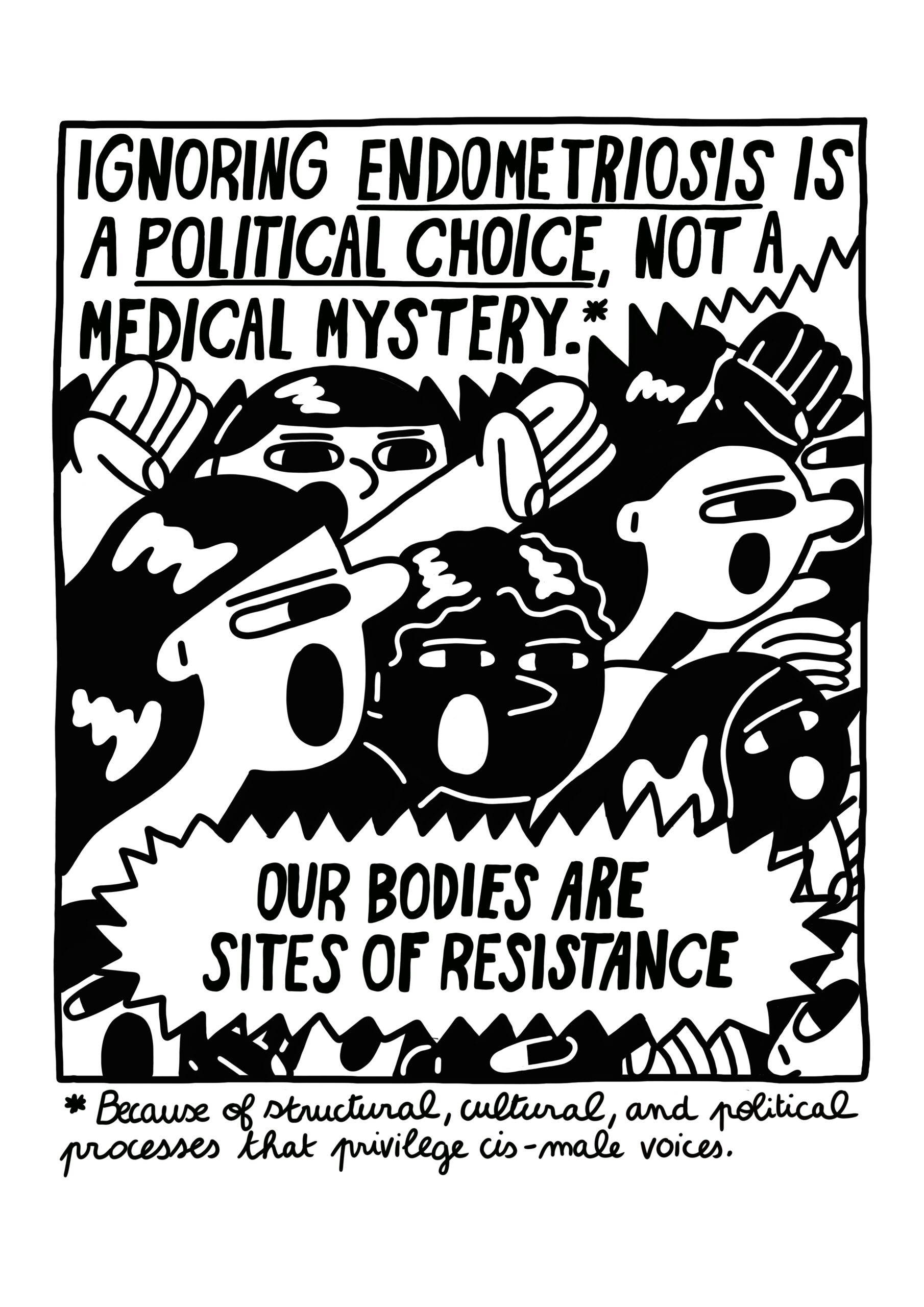Endometriosis mental health Psychologist
A Disease with Multiple Impacts: Mental Health, Pain, and Mental Load
Endometriosis is a chronic, debilitating illness that disrupts the lives of those affected on many levels: physical, psychological, social, and professional.
- Physical Impact: It causes intense pain during menstruation, sexual activity, and even daily activities. This pain is often accompanied by chronic fatigue, making everyday life difficult. Hormonal treatments come with their own side effects, such as irritability and mood swings. The pain exacerbates anxiety, which in turn intensifies the pain, creating a particularly challenging vicious cycle.
- Professional Impact: These symptoms affect concentration and productivity at work. Many individuals with endometriosis need to take time off or work with reduced energy levels.
- Mental Load: The mental load associated with endometriosis is immense. Beyond managing the pain, patients must juggle professional and social expectations and the efforts to improve their quality of life (healthcare, diet, therapies). Not to mention the daily emotional burden it imposes.

Medical Neglect: A Disease Overlooked by a Patriarchal System
One of the most frustrating aspects of endometriosis is medical neglect and the lengthy journey to diagnosis. On average, it takes seven to eight years (though this varies widely) to get a diagnosis. This delay is partly due to:
- The trivialization of menstrual pain, often dismissed as “normal” or attributed to an overreaction. The disease is poorly understood and frequently minimized, compounded by the societal taboo surrounding menstruation.
- A lack of training among medical professionals in recognizing and treating this condition.
Patients often have to repeatedly advocate for themselves, recounting their experiences to each new healthcare provider. This diagnostic journey can feel isolating and invalidating, with dismissive remarks such as “It’s all in your head,” “A pill will fix it,” or “It’s preparing you for childbirth pain.”
Endometriosis remains under-researched, poorly diagnosed, and a low priority in public health policies. This medical neglect reflects deeply rooted androcentrism in healthcare, where research priorities focus on “masculine” or “universal” pathologies. Diseases primarily affecting menstruating individuals are often relegated to a lower priority.
This hierarchical prioritization in research has concrete consequences:
- Treatments are often inadequate, focusing on symptom suppression rather than addressing underlying causes.
- Care protocols are rarely personalized, and alternative therapies are limited.
- Research into effective treatments is slow, as it lacks the financial and institutional support granted to other “urgent” or “profitable” conditions.
Endometriosis as a Political and Societal Issue: The Political Nature of Female Bodies
Endometriosis is not just a medical issue; it raises significant political and societal questions about the place of female bodies in public discourse. The neglect of endometriosis as a health issue reflects the marginalization of menstruating bodies in society.
- Menstrual pain is considered a private issue to be managed silently, marginalizing the needs of affected individuals.
- Public health policies insufficiently address this condition, with a lack of awareness campaigns, minimal research funding, and little recognition of the disability it can cause.
- The patriarchal bias in medicine ensures that cisgender men dominate decision-making processes, with health issues specific to menstruating individuals often dismissed as “niche.”

Few countries include endometriosis in public health programs, and awareness campaigns are nearly nonexistent. Legislative measures to recognize the disability caused by endometriosis or to ensure equitable access to treatment are rare and inadequate.
Endometriosis mental health Psychologist
A Justice and Equity Issue
Endometriosis is fundamentally a social justice issue. Ensuring access to adequate care for all, regardless of gender, and acknowledging the lived experience of pain is crucial. The disease profoundly impacts professional life, relationships, and quality of life for millions of people. The political neglect is especially glaring when considering the economic and social costs of endometriosis, including lost workdays, frequent medical consultations, expensive treatments, and diminished quality of life. Yet, managing the disease often falls on the shoulders of the individuals affected, who must navigate an uninformed and unsupportive healthcare system.
Endometriosis highlights the direct consequences of a patriarchal healthcare system where cisgender male voices dominate. Addressing this inequality requires a fundamental reevaluation of how medical priorities are set, actively including the experiences of affected individuals and emphasizing the diversity of lived experiences.

✴︎ How I Support Individuals with Endometriosis
As a psychologist, I offer personalized support to individuals living with endometriosis. My approach emphasizes active listening and valuing the unique narrative of each individual. Each experience is singular, and I strive to ensure my patients feel heard and validated in their journey with this condition.
Therapy helps to:
- Explore and dismantle patriarchal narratives that minimize pain and the experiences of those affected.
- Alleviate stress and anxiety associated with chronic pain and medical uncertainties.
- Manage emotions such as anger, sadness, or frustration related to the limitations imposed by the illness.
- Strengthen self-confidence, often undermined by a lack of social and professional understanding.
- Reduce mental load by helping patients prioritize and ease the emotional burden of the disease.
- Provide meaning to their experiences by articulating complex emotions like frustration, sadness, or anger.
- Build resilience by working on pain management, stress, and fatigue.
- Develop assertiveness to better communicate needs in a world often unaware of this condition.
Endometriosis mental health Psychologist


